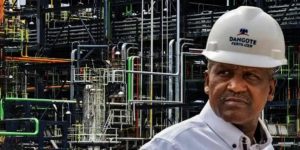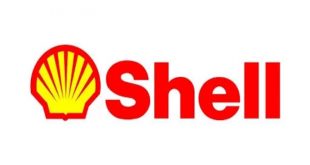
This development comes as Dangote navigates a dispute with a key equity partner and ongoing regulatory issues in Nigeria.
Aliko Dangote, Africa’s wealthiest individual, is considering a sale of his oil refinery to the Nigerian National Petroleum Company Limited (NNPCL).
The refinery, which has a capacity of 650,000 barrels per day and has been operational since last year, has faced challenges in securing crude oil supplies from international producers.
This development comes as Dangote navigates a dispute with a key equity partner and ongoing regulatory issues in Nigeria.
Dangote has expressed his commitment to the success of the refinery project, and is open to divesting his ownership if it benefits the nation. Despite facing challenges and frustrations, Dangote’s willingness to sell demonstrates his dedication to the country’s progress.
The Nigerian National Petroleum Company (NNPC) has already received 6.9 million barrels of oil from the refinery since last year, and a potential sale could further enhance the country’s energy sector.
The refinery, which began operations last year after a decade of construction, has a capacity of 650,000 barrels per day and aims to reduce Nigeria’s reliance on imported fuel, potentially saving up to 30% of foreign exchange spent on imports.
The project’s total cost was $19 billion, exceeding initial estimates.
“Let them (NNPC) buy me out and run the refinery the best way they can. They have labeled me a monopolist. That’s an incorrect and unfair allegation, but it’s OK. If they buy me out, at least, their so-called monopolist would be out of the way,” Dangote told PREMIUM TIMES in an exclusive interview on Sunday.
“We have been facing a fuel crisis since the 70s. This refinery can help resolve the problem, but it seems some people are uncomfortable with my involvement. So I am ready to let go, let the NNPC buy me out and run the refinery,” he added.
Dangote’s oil and gas venture is making progress, despite facing some challenges. The conglomerate, which has a strong presence in Nigeria’s cement, salt, and sugar industries, is now expanding into the energy sector.
The refinery, currently operating at half capacity, is expected to make a significant impact in the Nigerian market with its first petrol rollout in August.
To address initial challenges in sourcing crude oil from international producers, the refinery has secured alternative supply channels from Brazil and the US.
This move ensures the refinery’s continued operation while it finalizes agreements with local suppliers. Additionally, NNPC has already delivered 6.9 million barrels of oil to the plant, with further deliveries anticipated.
Dangote said, “As I approach my 70th birthday, I’m reminded that my legacy is what matters most. I’m dedicated to creating a lasting impact in Nigeria, and I’m confident that this refinery will be a game-changer for our nation’s energy sector.”
“Four years ago, one of my wealthy friends began investing abroad. I disagreed and urged him to rethink in the interest of our country. He blamed his actions on policy inconsistencies and interest group shenanigans. He has been taunting me recently, saying he warned me and has been proven right,” Dangote added.
A dispute has arisen between the Dangote Group and the Nigerian Midstream and Downstream Petroleum Regulatory Authority (NMDPRA) regarding the quality of diesel fuel in Nigeria.
Last month, Devakumar Edwin, vice president of oil and gas at the Dangote Group, alleged that the NMDPRA permitted the importation of substandard fuel.
In response, Farouk Ahmed, chief of NMDPRA, claimed that diesel from Dangote’s refinery, as well as from other sources, contained high sulphur levels, exceeding the West African standard.
However, during a recent tour of the Dangote Petroleum Refinery and Dangote Fertiliser Limited complex by members of the House of Representatives, Dangote refuted these claims, citing lab tests showing a sulphur content of 87.6 ppm in their diesel.
He invited the regulator to conduct an impartial comparison of the quality of refined products from his refinery and imports.
On Saturday, Dangote also announced plans to halt his investment in Nigeria’s steel industry to avoid accusations of monopoly.
“You know, about doing a new business which we announced, that is, steel. Actually, our board has decided that we shouldn’t do the steel because if we do the steel business, we will be called all sorts of names like monopoly. And then also, imports will be encouraged,” Dangote said.
 DailyrecordNg …Nigeria's hottest news blog
DailyrecordNg …Nigeria's hottest news blog








